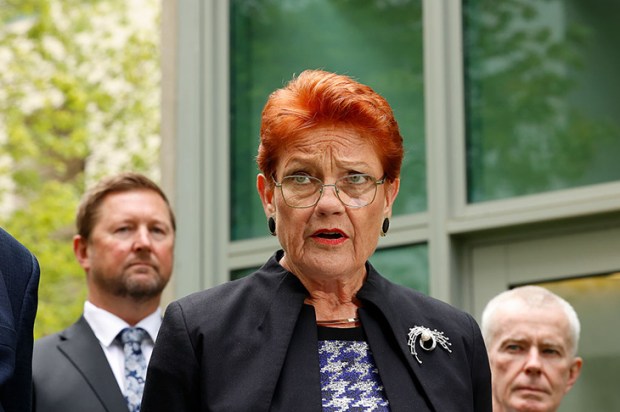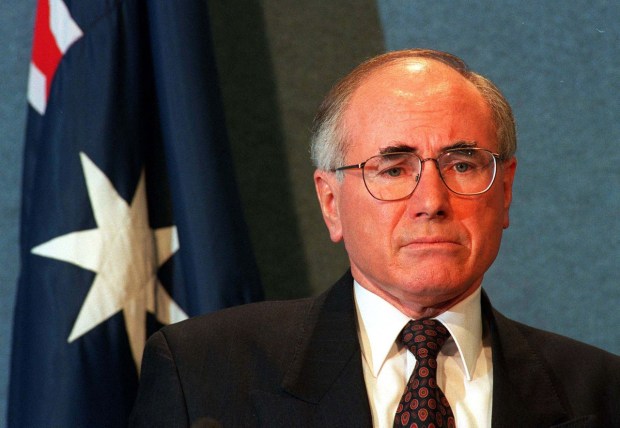Murder mystery
Sir: I once made a diagnosis of a very rare condition too late to cure the patient. She was nevertheless grateful and thanked me, though my conceit evaporated when she asked: ‘What took you so long?’
I suspect the managers at the Countess of Chester Hospital must feel as I did (‘Hospital pass’, 26 August). Murder was not on the top of their differential diagnoses. Many senior clinicians who have had leadership roles in NHS hospitals bear the scars of conflicts with management, though perhaps not as deep as those of the Chester paediatricians.
We would nevertheless acknowledge that most managers are dedicated, conscientious professionals committed to the success of their hospitals. They do not get the recognition and adulation received by the clinical staff. They have an unenviable job reconciling the demands of senior executives with pressure from the clinicians whom they manage. The executives are no less uncomfortable as they live with a succession of often mutually exclusive priorities from government, Royal Colleges, trades unions and universities. If all managers are to be tarred with the Chester brush, we will struggle to recruit high-calibre people to repair and reform an NHS which they did not break. The inquiry will probably find individual failures but it should look at the root causes which are in the system.
C.G. Winearls, FRCP
Consultant nephrologist 1988-2019; Clinical director Oxford Kidney Unit 1995-2009; Oxford University Hospitals NHS Foundation Trust
Bring back matron
Sir: Isabel Hardman rightly concludes that: ‘If previous inquiries are anything to go by, nothing will really be done – and we will have to wait for the next scandal.’
Sadly no form of inquiry into the events leading up to Lucy Letby’s serial murder conviction is likely to restore trust in the management of NHS neonatal units. If the substantial costs of an inquiry were applied instead to appointing matrons to supervise nurses in baby units, the bereaved and prospective parents would obtain immediate reassurance of future safety without having to wait years for a probably inconclusive outcome.
By the same token, bringing back matrons throughout the NHS would also do much to restore public confidence and staff morale.
Trevor Lyttleton
London NW11
Follow the French
Sir: In referring to the ‘suburban parts of Kent, Surrey, Essex and Herts’ in his discussion of the Ulez, Charles Moore identifies a key problem with the governance of London (Notes, 19 August). It is surely not appropriate for one local government organisation to be responsible for an area with a population larger than that of Scotland and Wales combined, especially when just one person has so much power?
The outer London suburbs have a completely different urban form, density and in some ways economy to that of inner London. Had we evolved London’s government in the 1960s in the same way that the French reorganised the Paris conurbation, we would not have this problem today. France ‘hived off’ the suburban parts of the départements (counties) surrounding Paris to create new local authorities while retaining central Paris as its own authority. Paris has the one function that necessarily should be dealt with on a conurbation-wide basis in its transport authority, RATP. Had we retained the former LCC as the authority for inner London and created new authorities for inner Hertfordshire, inner Essex, inner Kent and inner Surrey, while leaving the pre-1964 Middlesex untouched, we would not have the current Ulez fiasco.
Such authorities would convert readily into the unitary authorities with a population of between 250,000 and one million, currently favoured by the main political parties. It is perhaps not too late?
David Seex
Senior lecturer in urban design, School of Architecture and Cities, University of Westminster, London W1
Victory of sorts
Sir: I think Marcus Walker is a little harsh on the poor old Church of England’s Sunday services and the England women’s World Cup final (‘Slack Sabbath’, 26 August). Here in west Berkshire we happily brought forward our normal 11 a.m. service to 9.30 a.m. which meant we were able to pray for victory and be home in time to watch the entire match.
What is much more worrying, however, is the idea from Truro for the creation of mega-benefices of, say, 20 churches run by few clergy. Does the C of E really want to drive people away from Sunday worship? If this suggestion were ever tried here, the PCC would not accept it and we would happily go it alone. One of the advantages of this would be that there would be no need to fill out 20 pages of forms every time we wanted to change a lightbulb or a roof tile and wait six months for permission.
Charles Puxley
Easton, Berks
Called to account
Sir: I know of no memorial to US army accountants (Letters, 26 August) but, contrary to Martin Vander Weyer’s observation that ‘no one ever erects monuments to accountants’, I draw attention to a statue of Luca Pacioli in Sansepolcro, Tuscany. Pacioli, c. 1447-1517, a collaborator with Leonardo da Vinci, was the first person to publish a work on the double-entry system of book-keeping and accounting ethics, effectively establishing the principles of modern accounting. Apart from monuments, he was further memorialised in busts, stamps and coins commemorating the 500th anniversary in 1994 of his seminal treatise, Summa de arithmetica.
Peter Saunders
Salisbury, Wiltshire
Got something to add? Join the discussion and comment below.
You might disagree with half of it, but you’ll enjoy reading all of it. Try your first month for free, then just $2 a week for the remainder of your first year.













